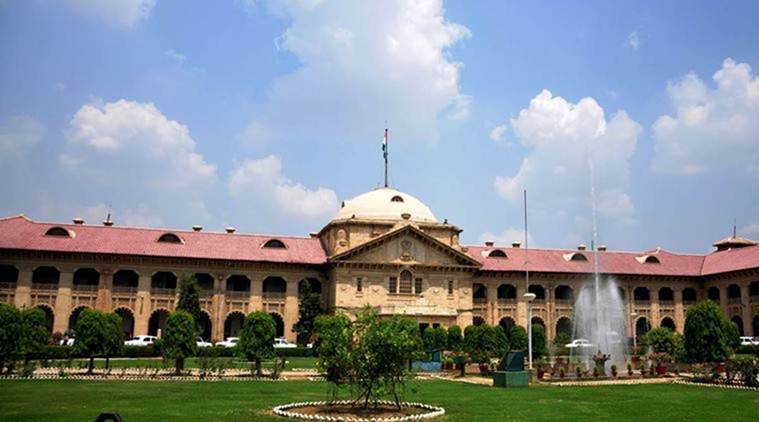The Allahabad High Court to hear a PIL on May 28, Friday seeking a ban on public address systems for announcement at temples, mosques, churches and gurdwaras in Uttar Pradesh.
The PIL has been filed by lawyer Ashutosh Kumar Shukla through Advocate Satyam Singh. It says the Noise Pollution (Regulation and Control) Rules 2000 have been framed by the Government of India’s Ministry of Environment and Forests to regulate and control ambient noise levels in public places from various sources, inter-alia, industrial activity, construction activity, (fire crackers, sound producing instruments), generator sets, loud speakers, public address systems, music systems, vehicular horns and other mechanical devices which have deleterious effects on human health and the psychological well-being of people.
It was alleged in the PIL that despite such rules to prevent annoyance, disturbance, discomfort or injury or risk of annoyance, disturbance, discomfort or injury to the public blatant use of public address systems is going on in the entire state at temples, mosques, churches and gurdwaras.
The petition said permanent public address systems of high frequency have been installed for religious announcements, call for prayers, chanting etc. causing annoyance, disturbance, discomfort, mental injury to the general public dwelling and occupying property in the vicinity of such religious places.
The petitioner stated in the PIL that it is a settled proposition of law that right of religious organisations to use loud-speaker or amplifier is not an independent right under Article 25 of the Constitution. Article 25(1) provides that subject to public order, morality and health and to the other provisions of this part, all persons and equally entitled to freedom of conscience and the right freely to profess, practise and propagate religion.
The petition laid emphasis that an individual is entitled to sleep as comfortably and freely as he breathes. Sleep is essential for a human being to maintain the delicate balance of health necessary for its very existence and survival. Sleep is, therefore, a fundamental and basic requirement without which the existence of life itself would be in peril. To disturb sleep, therefore, would amount to torture which is now accepted as a violation of human right. It would be similar to a third degree method which at times is sought to be justified as a necessary police action to extract the truth out of an accused involved in heinous and cold-blooded crimes.
The petitioner has alleged that state of Uttar Pradesh has grossly failed to implement the order passed
by the High Court as a regular user of public address system through sound amplifier device is continuing under the nose of respondents and the Uttar Pradesh Pollution Control Board has failed to enforce noise pollution control measures as provided under Rule 4.
The petition reads that the Noise Pollution (Regulation & Control) Rules, 2000 Rule 4 prescribes that State Pollution Control Boards or Pollution Control Committees in consultation with the Central Pollution Control Board shall collect, compile and publish technical and statistical data relating to noise pollution and measures devised for its effective prevention, control and abatement. On true and proper construction of the provision of Article 25(1), read with Article 19(1)(a) of the Constitution, a citizen should not be coerced to hear anything which he does not like or which he does not require. Use of sound amplifying device for public address system creates adverse effect on physical and mental condition of the general public. Sounds generated from such devices may travel at least half to one kilometre around the area causing adverse effect on physical and mental condition of the general public living within the said area, which may cause interruption of sleep, affect communication, loss of efficiency, hearing loss or deafness, high blood pressure, depression, irritability, fatigue, gastro-intestinal problems, allergy, distraction, mental stress and annoyance etc. Use of public address system through loudspeakers and sound amplifying devices is subject to restrictions as imposed in The Noise Pollution (Regulation and Control) Rules, 2000.
Read Also: Judicial activism mustn’t mean disrespecting other democratic institutions
“Now in order to maintain public order, morality and health, it is necessary that direction of the High Court be complied in its letter and spirit. Despite clear direction of the High Court respondents have failed to implement the direction of this Hon’ble court. Hence the present petition is being filed for direction to the respondent authorities to ban use of public address system for religious announcements at temples, mosques, churches etc. Hence petition may be allowed in terms of prayer sought in the instant petition,” the petition said.


